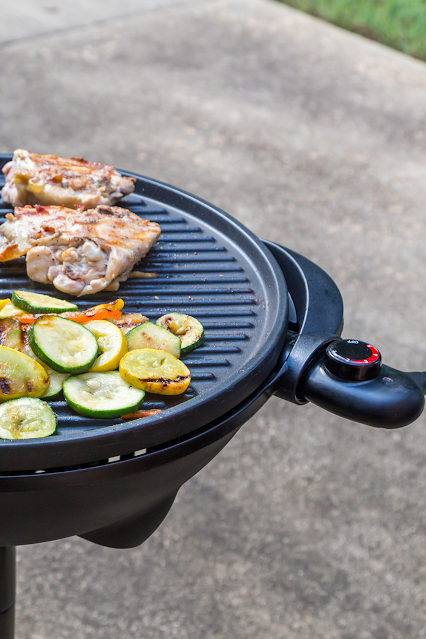When it comes to outdoor cooking, having the right BBQ grill can significantly impact the flavor and overall experience. One crucial factor to consider when choosing a BBQ grill is the type of fuel source it utilizes.
Several options are available, each with its pros and cons. This comprehensive guide will delve into the different fuel sources for BBQ grills. Understanding these options will help you make an informed decision when it comes to selecting the perfect BBQ grill for your needs.
Wood Pellet Grills
Wood pellet grills combine the convenience of gas grills with the authentic flavors of charcoal grills. They feature an automated system that feeds wood pellets into a fire pot, such as the highly regarded Timberline XL from Traeger, which generates heat and smoke for cooking.
One of the standout advantages of wood pellet grills is the ability to achieve that distinctive smoky flavor from cooking with wood. They also offer precise temperature control, allowing for versatile cooking options. Moreover, wood pellet grills are known for their versatility, enabling users to sear, smoke, bake, and grill various dishes.
On the downside, wood pellet grills generally have a higher price tag than others. The reliance on wood pellets may also require additional planning and stocking up, especially if they are not easily accessible in your area.
Propane Grills
Propane grills are among the most popular options for outdoor cooking. They are powered by propane gas stored in portable tanks that can be easily replaced or refilled. One of the main advantages of using propane grills is their convenience. You will need to learn the most common residential propane gas tank sizes for your personal space.
They heat up quickly and allow for precise temperature control, giving you the flexibility to cook various types of food. Propane grills are also highly portable, making them ideal for tailgating or camping trips.
However, one potential drawback of propane grills is the constant need to monitor the propane levels and ensure you have a spare tank. Additionally, some enthusiasts argue that propane grills may not deliver the same smoky flavor as charcoal or wood pellet grills.
Natural Gas Grills
A natural gas grill might be a convenient option if you have a natural gas supply available at home. These grills are connected directly to your home's natural gas line, eliminating the need for propane tanks. One of the significant advantages of natural gas grills is the constant fuel supply they provide. You don't have to worry about running out of gas or refilling tanks.
Moreover, natural gas grills offer benefits similar to propane grills in terms of temperature control and ease of use. However, the installation process for natural gas grills usually requires professional assistance and the availability of a natural gas line.
Charcoal Grills
For those seeking that classic smoky flavor and an authentic grilling experience, charcoal grills are an excellent choice. Charcoal grills use charcoal briquettes or lump charcoal as the fuel source. They are known for producing high temperatures, perfect for searing meats and achieving attractive grill marks.
One of the primary advantages of charcoal grills is the distinct flavor they impart to the food. The smoke produced by burning charcoal enhances the taste and creates that beloved outdoor cooking aroma. Additionally, charcoal grills are generally more affordable than gas grills, making them accessible to a broader range of people.
Conversely, charcoal grills require some skill and practice to achieve consistent temperatures. They also require a longer preparation time as the coals need to be lit and allowed to reach the desired temperature. Moreover, the ash cleanup after grilling can be a bit messy.
Electric Grills
Electric grills have gained popularity as a convenient and easily accessible option for outdoor cooking, particularly for those living in apartments or communities with strict fire regulations.
They are powered by electricity and heat up quickly, providing a hassle-free grilling experience. Electric grills are generally compact and easy to clean, making them a favorite amongst urban dwellers.
One significant advantage of electric grills is their consistent heat, eliminating the need for constant monitoring and adjusting. They are also relatively safer than charcoal or gas grills since no open flame exists. However, electric grills may not deliver the same smoky flavor as other grills, and they require access to an electrical outlet, limiting their portability.
Final Thoughts
Choosing the right BBQ grill type depends on individual preferences, convenience, and desired cooking experience. Propane and natural gas grills provide convenience and temperature control, while charcoal grills offer that unmistakable smoky flavor. Electric grills are ideal for those with space limitations or fire regulations, while wood pellet grills combine the convenience of gas grills with the authentic flavors of cooking with wood.
By understanding the pros and cons of each fuel source, you can make an informed decision when selecting your BBQ grill. Whether it's the simplicity of propane, the convenience of natural gas, the taste of charcoal, the ease of electricity, or the versatility of wood pellets, a BBQ grill type will perfectly suit your outdoor cooking needs.













Post a Comment